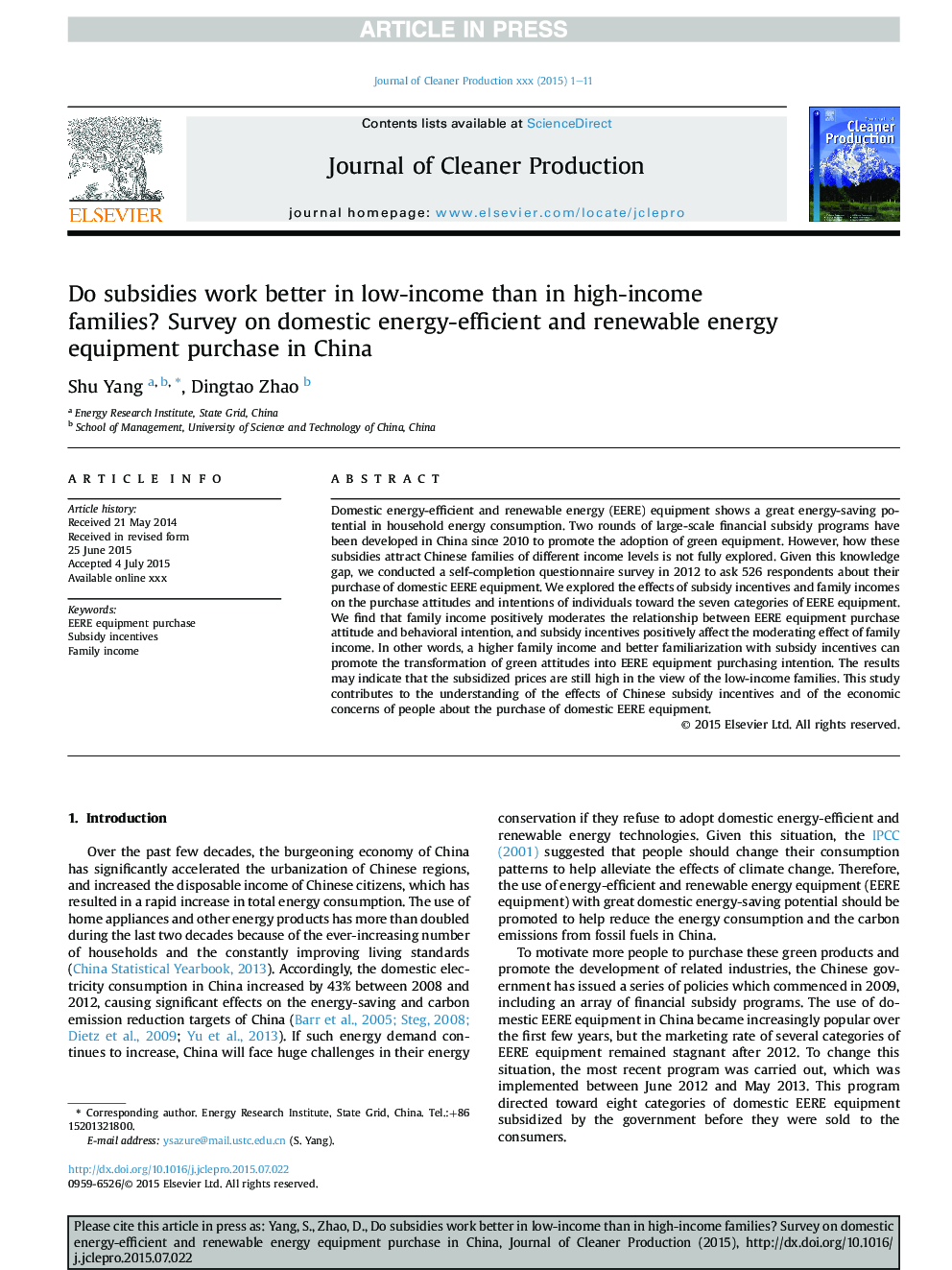| Article ID | Journal | Published Year | Pages | File Type |
|---|---|---|---|---|
| 10688212 | Journal of Cleaner Production | 2015 | 11 Pages |
Abstract
Domestic energy-efficient and renewable energy (EERE) equipment shows a great energy-saving potential in household energy consumption. Two rounds of large-scale financial subsidy programs have been developed in China since 2010 to promote the adoption of green equipment. However, how these subsidies attract Chinese families of different income levels is not fully explored. Given this knowledge gap, we conducted a self-completion questionnaire survey in 2012 to ask 526 respondents about their purchase of domestic EERE equipment. We explored the effects of subsidy incentives and family incomes on the purchase attitudes and intentions of individuals toward the seven categories of EERE equipment. We find that family income positively moderates the relationship between EERE equipment purchase attitude and behavioral intention, and subsidy incentives positively affect the moderating effect of family income. In other words, a higher family income and better familiarization with subsidy incentives can promote the transformation of green attitudes into EERE equipment purchasing intention. The results may indicate that the subsidized prices are still high in the view of the low-income families. This study contributes to the understanding of the effects of Chinese subsidy incentives and of the economic concerns of people about the purchase of domestic EERE equipment.
Keywords
Related Topics
Physical Sciences and Engineering
Energy
Renewable Energy, Sustainability and the Environment
Authors
Shu Yang, Dingtao Zhao,
